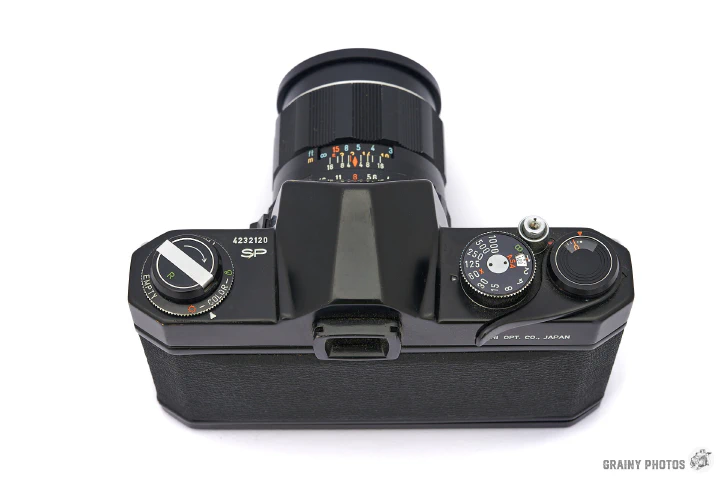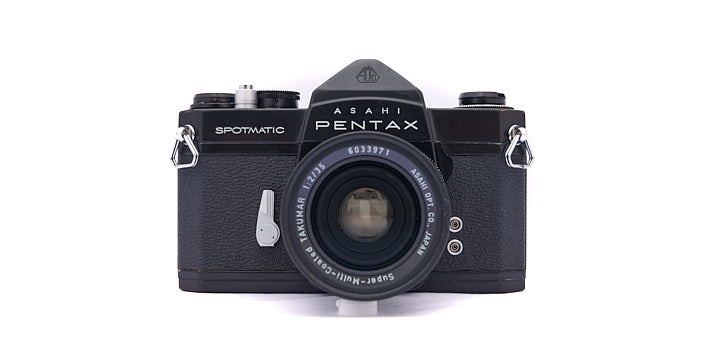The Pentax Spotmatic holds a significant place in the evolution of SLR (single-lens reflex) cameras. It was one of the first 35mm SLR cameras to feature TTL (through-the-lens) metering, and combined with the M42 lens mount compatibility and Pentax’s reputation for producing high-quality cameras, it became a very popular and successful camera. Its innovations influenced subsequent camera designs and set a standard for SLR cameras for years to come.
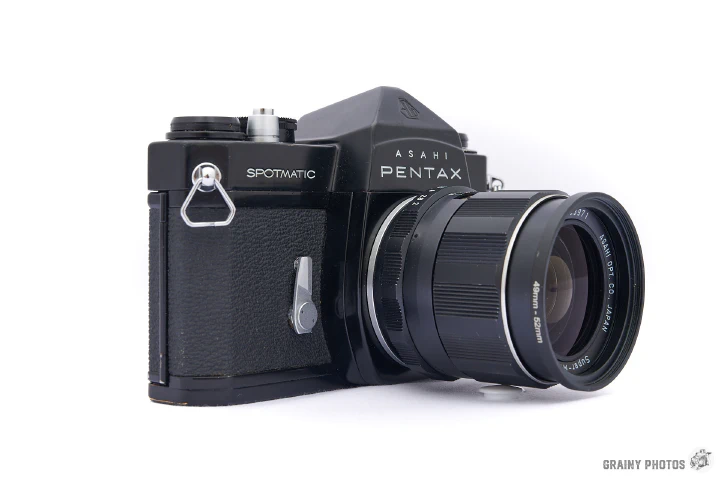
History
The Pentax Spotmatic was introduced by the Asahi Optical Company (later known as Pentax Corporation) in 1964. It was a groundbreaking camera due to its innovative TTL (through-the-lens) metering system.
The Spotmatic was well-received by photographers and became a commercial success. Its combination of innovative features, reliability, and relatively affordable price made it popular among both amateur and professional photographers.
The main features of the Spotmatic
TTL Metering
One of the key features of the Spotmatic was its built-in light metering system, which measured light through the lens itself. This allowed for more accurate exposure readings and greater convenience for photographers, as they no longer needed to rely on handheld light meters.
It was one of the first cameras with TTL and used step-down metering. With this method, the lens aperture is stopped down to the required setting, allowing the metering system to accurately measure the light passing through the lens at the chosen aperture. The exposure information is displayed in the viewfinder by means of a needle.
The film speed is set in an inset window on the shutter speed dial on top of the camera, next to the film advance crank.
Shutter speed
For its time, the Spotmatic offered an impressive top shutter speed of 1/1000 second. The full range was 1 to 1/1000 second, and B.
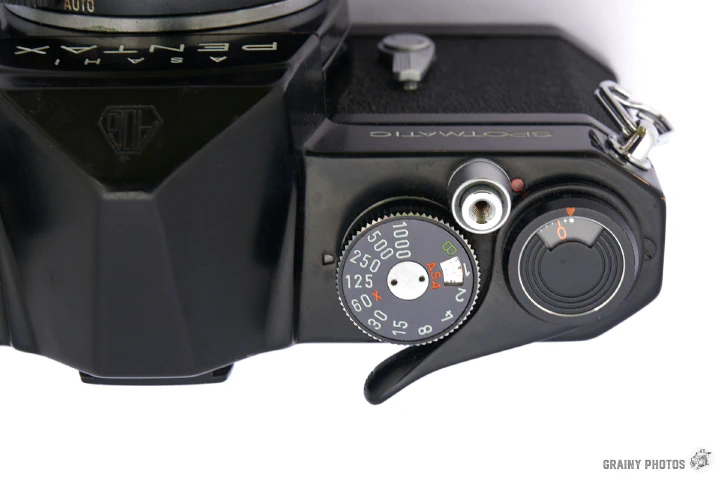
M42 Lens Mount
The Spotmatic utilised the M42 lens mount, also known as the Pentax screw mount. Pentax made a superb range of lenses for the Spotmatic under the Takumar name. This mount became a popular standard, and many lens manufacturers produced lenses compatible with the Spotmatic. This compatibility enhanced the versatility of the camera, as users had access to a wide range of lenses.
I use the following lenses with the Spotmatic:
- Super-Takumar 28mm f3.5 lens
- Super-Takumar 35mm f2 lens
- Super-Takumar 135mm lens
- Super-Multi-Coated Macro Takumar 50mm f4 lens
Focusing and handling
I find the camera very easy to use. Everything is logically laid out, and it is intuitive.
The camera has a mechanically controlled cloth focal plane shutter. It uses batteries only for the light meter. Aperture, shutter speed, and focus are fully manual, allowing photographers complete creative control over their images.
Loading film
The camera uses 135 film. Film loading is conventional. The back of the camera is opened by pulling up the rewind crank, and the film is loaded as in most SLR cameras. The frame counter is in a window on the film advance lever.
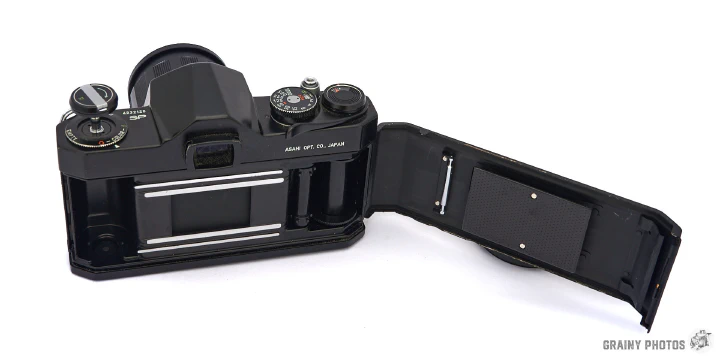
Taking the photo
Because of the step-down metering, a slightly different workflow is needed. This is how I do it:
- Set the desired shutter speed
- With the aperture wide open, compose the photograph
- Turn on the light meter by pushing down on the lever on the lens
- Reduce the aperture so the meter registers the correct exposure
- Take the photo
Taking the photo automatically turns off the exposure meter.
I have noticed that on my camera, the light meter can be affected by stray sunlight entering through the viewfinder. This is particularly a problem on bright sunny days when the sun is behind/slightly to the side of you. This is easily fixed by cupping your hand over the eyepiece and your eye to protect stray light from entering. Do watch out for that.
